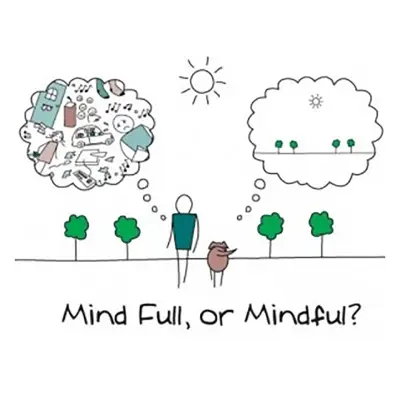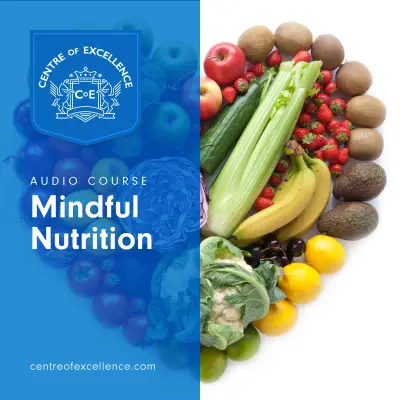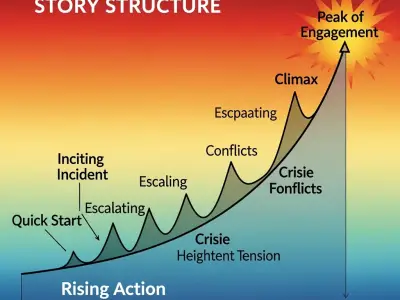Have you ever wondered what enlightenment truly means? Often shrouded in mystery and misconceptions, the concept is an accessible and profoundly enriching state of being. This guide aims to demystify enlightenment, breaking it into its core elements. Whether you're curious about its historical roots or how it's achieved, this comprehensive exploration offers insights into a journey that could transform your life.
Jump to:
What Does Enlightenment Mean?
At its heart, enlightenment means awakening to life's realities, seeing beyond our usual perceptions, and recognising deeper truths about our existence. It's about gaining a clear-sightedness that transcends ordinary experiences.
The Meaning of Enlightenment Across Cultures
The concept of enlightenment varies across cultures. In Western philosophies, enlightenment is often associated with the age of reason, which emphasises science, logic, and rational thought. However, enlightenment takes on a more spiritual and reflective meaning in Eastern philosophies, particularly Buddhism.

Enlightenment in Buddhism
In Buddhism, enlightenment (or 'nirvana') is a central concept. It represents the ultimate state of satori, or awakening, where an individual transcends desire and suffering. Buddhists believe that one can experience a deep peace and understanding of the universe through enlightenment.
Buddhists believe that Nirvana is the ultimate goal of the spiritual path. It is a state of complete liberation from the cycle of birth, death, and rebirth, known as samsara. This liberation is not just a cessation of physical existence but a release from all forms of suffering and mental affliction. It signifies the end of ignorance and the awakening to the ultimate truth.
Nirvana is a state where an individual transcends desire and suffering – the core elements perpetuating the rebirth cycle in Buddhist philosophy. It's a state of deep peace and understanding of the universe, going beyond the limitations of the ego and the illusions of the material world.
The understanding of the Four Noble Truths is central to reaching enlightenment in Buddhism. These truths form the basis of Buddhist teaching and provide a framework for navigating the path to enlightenment. The Eightfold Path also offers practical steps towards achieving enlightenment. It encompasses aspects of wisdom, ethical conduct, and mental discipline.
Buddhism emphasises that enlightenment is not merely an intellectual understanding but a deep, experiential insight. It's about directly experiencing the truth of these teachings in one's life. This involves a transformation of perception, where one sees reality as it is, free from the distortions of ego and delusion.

How to Become Enlightened: A 9-Step Guide
Achieving enlightenment is a journey of personal transformation and profound self-discovery. It's a path that requires commitment, patience, and an open heart. Here's a step-by-step guide to help you embark on this transformative journey:
Step 1: Cultivate Self-Awareness
Enlightenment begins with self-awareness, where you become deeply aware of your thoughts, feelings, and actions. Start by practising mindfulness – the art of being fully present in the moment. Mindfulness can be developed through regular meditation, where you focus on your breath and observe your thoughts without judgment.
Practical Tip: Dedicate a few minutes each day to sit quietly and focus on your breathing. Notice when your mind wanders and gently bring your attention back to your breath.
Step 2: Embrace Self-Reflection
Self-reflection is an important step in understanding yourself better. Reflect on your life experiences, your reactions to them, and what they reveal about your beliefs and values. Journaling can be a powerful tool, allowing you to deeply explore your thoughts and feelings.
Practical Tip: Keep a journal and regularly write about your experiences, thoughts, and feelings. Reflect on how they shape your perception of the world.
Step 3: Meditate
Meditation is central to the path of enlightenment. It helps you develop a clear, calm, and focused mind. Meditation has many forms, such as focused attention, loving-kindness, or mindfulness meditation. Explore different techniques to find what resonates with you.
Practical Tip: Start with short meditation sessions, gradually increasing the duration. Use guided meditations if you're a beginner, available through apps or online courses.
Step 4: Practice Ethical Living
Ethical living means aligning your actions with your values. It involves living with integrity, honesty, compassion, and kindness. Consider how your actions impact others and strive to live in a way that promotes harmony and understanding.
Practical Tip: Reflect on your daily actions and decisions. Ask yourself if they align with your values and the person you want to be.
Step 5: Seek Wisdom and Knowledge
Enlightenment involves expanding your understanding of life and existence. Read philosophical and spiritual texts, listen to teachings, and engage in discussions that challenge and broaden your perspectives.
Practical Tip: Read books or listen to philosophy, spirituality, and personal growth talks. Consider taking a course or attending workshops that align with your interests.
Recommended for you!
Best SellersStep 6: Connect with a Supportive Community
Joining a community of like-minded individuals can provide support and guidance on your path. Sharing experiences and learning from others can be incredibly enriching and motivating.
Practical Tip: Look for local or online groups that share your interest in personal and spiritual growth. Attend meetups, seminars, or retreats to connect with others on a similar path.
Step 7: Embrace Change and Transformation
The path to enlightenment is dynamic and ever-evolving. Be open to change and let go of old patterns and beliefs that no longer serve you. Transformation is a key aspect of enlightenment.
Practical Tip: Regularly reassess your beliefs and be willing to adapt your perspectives. Embrace new experiences as opportunities for growth.
Step 8: Practice Compassion and Gratitude
Cultivating compassion for yourself and others is vital on the path to enlightenment. Additionally, practising gratitude can shift your focus from what's lacking to the abundance present in your life.
Practical Tip: Regularly practice acts of kindness and express gratitude daily, whether through a journal or by simply acknowledging the good in your life.
Step 9: Commit to Lifelong Learning
Remember, enlightenment is not a destination but a continuous journey. Remain committed to learning, growing, and evolving throughout your life.
Practical Tip: Stay curious and open to new experiences. Continuously seek knowledge and be willing to question and refine your understanding of the world.
Embrace the Path to Enlightenment with Centre of Excellence
If you’re intrigued by enlightenment and keen to explore further, we offer a comprehensive Meditation Diploma Course, perfect for those starting their journey. Here, you’ll delve deeper into the practice of meditation, an essential step towards enlightenment. Or if it’s Buddhist teachings that interest you, our Buddhism Diploma Course is a fantastic way to learn more about this compassionate religion.
For a limited time, this transformative course is available for just £29. Take this opportunity to learn and grow with Centre of Excellence.












